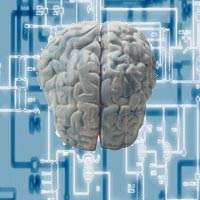After reading some of Kurzweils 'The Age of Spiritual Machines,' some questions came to mind.
Regarding consciousness and thinking in general: Would a smarter being than us think in the same basic way we do, using basic cause and effect that we would call logic, and if not what would be the differences?
I wonder if there are beings out there or one's which we could manufacture that could experience states of mind like enjoyment to a greater degree than us, Pearce's Hedonist Imperative mentions cognitive states far beyond anything known to us in our non-enhanced brains, it makes sense to me that one day we'll have all sorts of ways of enhancing sensory awareness, nano-chips, engineered future drugs, and bio-tech enhancements...I wonder what it would be like to experience feelings stronger and even more subtle than feelings we experience now.
Why haven't we heard from other civilizations as stated in Dvorsky's article Not the Final Frontier... could the 'Rare Earth Hypothesis' be true?
And in general I'm always curious if intelligence, general intelligence that we have over other animals, is a universal or, if unique only to our species how could it possibly be different from other types of intelligences? If someone could give a good argument for this that would be great!












































